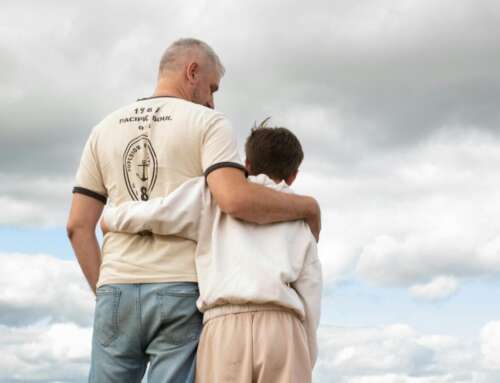 Excellent advice on helping a friend with an eating disorder and dealing with stalking
Excellent advice on helping a friend with an eating disorder and dealing with stalking
When I speak in schools, I’m often asked for advice on how to help a friend with an eating disorder (and not just girls – a male student ask me in a school in regional NSW recently). So I was really pleased to see the piece ‘Help! My BFF is wasting away before my eyes: How to deal when your bestie has an eating disorder’. Lydia Turner, co-director of BodyMatters , says one in five diagnosed with anorexia nervosa will die from the illness, while other types of ED’s like bulimia nervosa are linked to high rates of self-harm and suicidal thoughts. While alarming, it is important for girls to know these harsh facts, especially in light of the raft of on-line pro-ana (anorexia) and pro-mia (bulimia) communities which encourage self-starvation as a life-style choice and post skeletal images as ‘inspiration’ for thinness.
While girls are advised to show patience and compassion, not centering conversations on food and appearance, it is imperative the need for professional help is stressed and GF does this. If the friend with disordered eating refuses to seek help, readers are encouraged to disclose to a trusted adult (such as a school counsellor) regardless – it could save her life. “It is extremely distressing to watch a friend deteriorate before your eyes, but it’s not your responsibility to save her and you don’t have to shoulder this burden alone. You need to let the experts take charge…remember that this is a complicated illness and you cannot deal with it yourself,” GF wisely advises.
Related is ‘Why diets are dumb’ about how fad diets compromise nutrition and health. Deprivation is discouraged in favour of learning to eat in a balanced, healthy way. Specifically addressed is carb cutting (some girls won’t even breathe around carbs let alone eat them) and informed of the benefits of carbs for health. Body detoxing is described as “completely unnecessary and bad for you.” Liver and kidneys perform that job. Skipping meals messes with metabolism and can lead to binging afterwards. Meal replacements are also discouraged, as they don’t allow the full range of foods for long term health.
The realities of photo-shopping are covered, quoting clinical psychologist Lesley Russell who says “[These photos] are often presented as natural, and they’re not. It makes young girls feel like they’re never good enough or they can never live up to that.” GF shows how the use of filtered lighting, studio lighting, and glam make up can dramatically change images even when no digital enhancement is used. This is important for girls to know.
GF offers shopping tips for plus-size girls (defined here as size 16 which is an improvement on sizes 10-12 been called ‘plus’ in other places). Advice includes ignoring the rules and finding your personal style, trying a range of sizes because there is such a variation in what one size can mean and searching online where they are more options. Related is ‘Three generations on body image’, with GF reader Dee, 15, her mum Emma and grandmother Frances exploring the issue. It’s good to see GF engaging other family members in its articles to help girls feel more connected and less adrift in the world.
This issue contains a vitally important article on stalking. GF defines stalking as involving “repeated, unwanted contact in the form of phone calls, text messages, messages on social networking sites, notes/objects left at the victim’s home, being followed or being watched”. Victims often have to re-arrange their lives as a result of being stalked. Personal stories are given. Australian Institute of Criminology research finds 24% of youth stalking cases involved a fellow student, 23% a family member or peer acquaintance, 21% an ex-partner, 15% an ex-friend and 14% a neighbour. Most stalkers are male – 64% – but girls also engage in the crime, though are more like to stalk other girls.
A police officer discusses the rise of cyber stalking and stresses the importance of turning off geo-locators on smart phones to avoid being tracked. And don’t put personal details online including Facebook. “Don’t give anyone a clue about where you are or who are you are. You wouldn’t walk up to a stranger with a piece of paper with all your personal information, but that’s what happens on the internet…You just don’t know who you’re talking to,” says detective superintendent John Kerlatec of NSW police. He advises against meeting someone in real life you’ve met online. “We recently arrested someone who was pretending to be 20 years younger than they were to meet up with this girl and have sex with her.” But the majority of those stalked know their stalkers. Tell a trusted adult, avoid all contact with the stalker and block them from social networks. If it persists, call police.
Grandma has had a good run in Dolly and Girlfriend lately – respecting older women is a positive thing to encourage in a culture which generally renders them invisible. In ‘Grandma knows best’, the advice shared includes ‘Respect your elders’ –“most of the time, the adults around you are just trying to do what’s best for you because they care about you” – ‘Choose a boy who makes you feel really special’, ‘Always treat others how you want to be treated’, ‘If at first you don’t succeed, try and try again’ – “Come up with a new strategy to help you achieve your goals and ask your friends and family for support.”
It was somewhat jarring though, in this article decorated with a cup of tea on a lace doily, to read: “Sure, Emma in Year 11 is a bit of a moll, but spreading rumours about her won’t make her be any nicer to you, and it won’t make you popular.” Does GF want to be seen to be suggesting that some girls are ‘molls’ (would it have used the word ‘slut’ for example?). Here’s how Urban dictionary (OK it’s not the English Oxford but it does describe common usage of terms): “In more recent times it is used to describe a slovenly tart. It is a horrible insult to be called a moll. Molls usually wear too much makeup and wear ugly revealing clothing. Molls behave in a sexually provocative way, but often don’t have the looks to justify it. A moll is basically a very ugly slutty woman”.
I know some girls are using Puberty Blues language like ‘moll’ and ‘dropped’ since the show, but I understand it’s affectionate and jokey rather than serious – you would say it to or about a friend but you wouldn’t call someone a ‘moll’ to be mean to or about them. So why has GF used the term in its more traditional sense?
Back on track, we have ‘The Rebound’, which helps girls to fight back after receiving a blow to their confidence. Express how you feel, encourage yourself by thinking about what you are good at, and explore the world around you: “Grow, learn and look for ways you can improve future situations”. Also on the self-improvement theme is dealing with constructive criticism and how to see the difference between that and plain nastiness, which has no purpose.
More positive stuff in the form of ’15 ways to make a stranger smile’, such as volunteering at a nursing home or children’s hospital, complimenting others, writing a hand written note of thanks, welcome the new girl at school and such like (all things grannie would encourage too). Personal stories include 21-year-old Becky who suffered a stroke and Marlies, 14, who writes about losing her mother to cancer only two months ago.
The ‘Guy panel on sexism’ is a bit lightweight. While what the five boys aged 15-16 say is generally OK, (I acknowledge they’re young), I’m not sure they really understand what the word means and the extent of discrimination, inequality, sexual harassment, violence and a cultural landscape – for example violent video games, music videos, routine anti-women behaviour by many sportsmen- that encourages bad behaviour towards women and girls. Hopefully they’ll be more outspoken about rejecting these expressions of sexism in future issues.







Leave A Comment